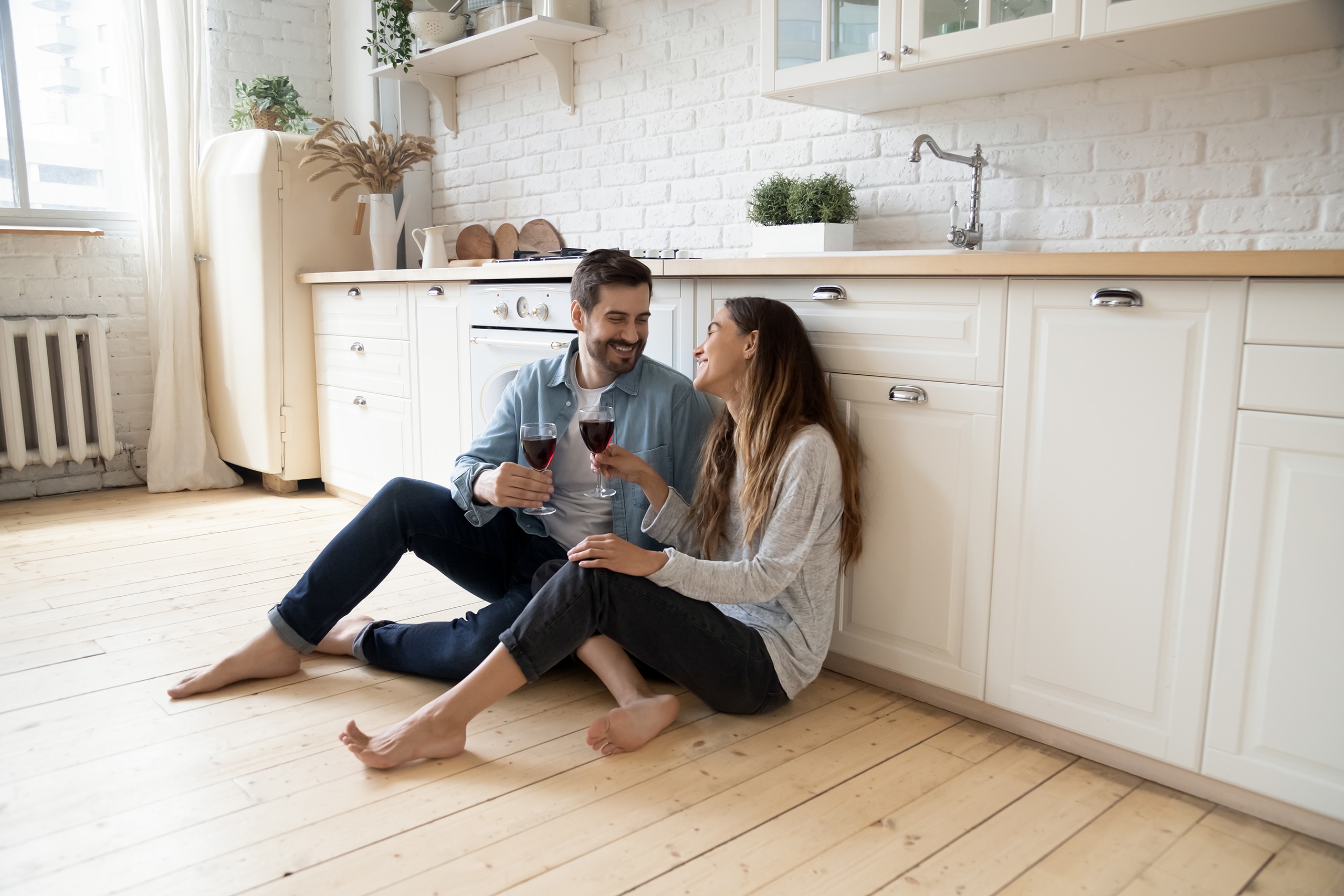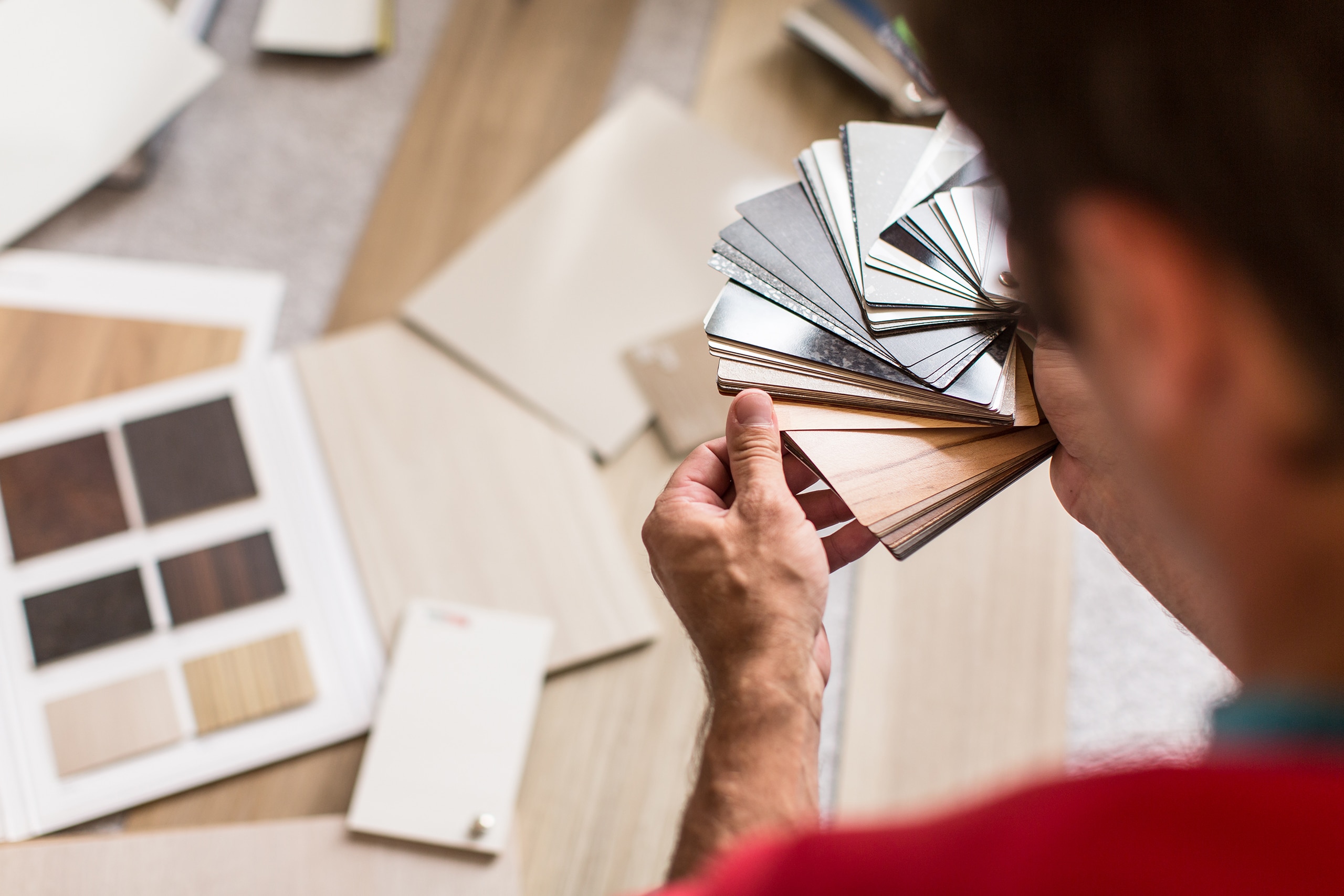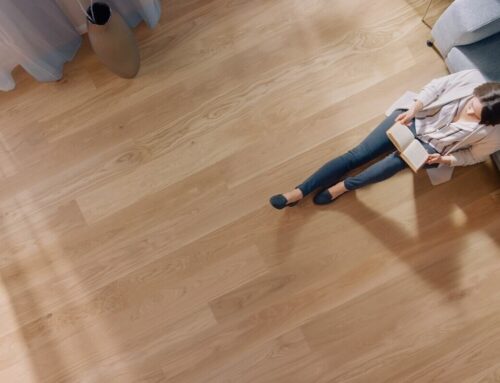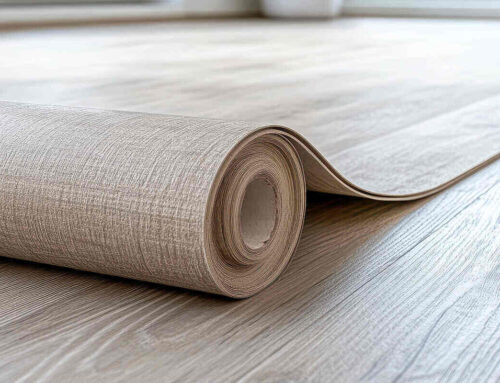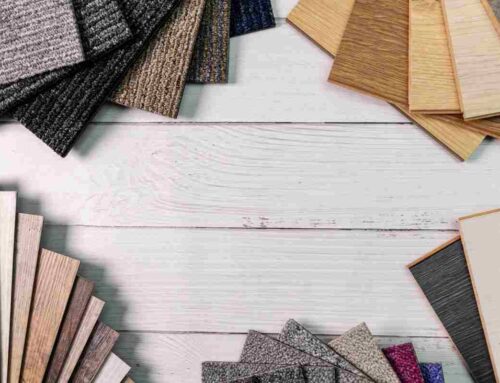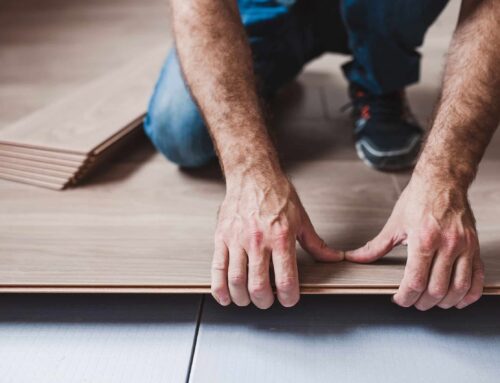As one of the busiest spots in the home, installing kitchen flooring requires thoughtful consideration to balance functionality and aesthetics. When it comes to flooring in Chesapeake, VA, there are numerous options available, depending on your tastes and preferences.
At Yates Flooring, we guide homeowners through this all-important step in their kitchen makeover to help them choose and install the flooring that matches their needs.
This post provides handy information and tips to guide you through the selection process, including why flooring matters in kitchen renovations, types of flooring, and the pros and cons of each. We also highlight the reasons behind the rise of luxury vinyl flooring.
Why Flooring Matters in Kitchen Renovations
The kitchen is the epicenter and heart of almost every home. With you and your family spending a considerable amount of time in the kitchen, you certainly want to add appealing and practical flooring.
Aesthetics
The flooring type should complement your chosen kitchen design and style elements. Whether you opt for hardwood, tile, laminate, or luxury vinyl, it should blend well with the other features in your kitchen (i.e., countertops, cabinets, walls, and appliances) for a polished, well-coordinated look and feel.
Functionality
Essentially, the kitchen layout defines its functionality. Island, U-shape, open, L-shape, straight, and parallel layouts all support unique functionality. While kitchens are generally messy, some layouts can contribute to messier floors than others, hence the importance of selecting the most suitable material. Generally, ideal kitchen flooring should be easy to maintain, durable, moisture and stain-resistant, and comfortable underfoot.
ROI (Return on Investment)
Kitchen floors are highly susceptible to damage from scratches and spills. High-quality flooring is thus essential to enhance durability. It should be moisture, scratch, and stain resistant to hold up against the constant foot traffic, accidental drops of sharp objects, and spillage.
Even with costly flooring that can last for decades without sustaining damage, it should pay off in the long run and save you money on repair and replacement costs.
Types of Flooring
Having understood why you should carefully consider flooring in your Chesapeake, VA kitchen makeover, let’s now discuss possible flooring options.
Hardwood Flooring
Hardwood is an elegant and timeless flooring ideal for different kitchen flooring design ideas. It exudes warmth and a luxurious feel and can increase the resale value of your home immensely. Besides, popular flooring colors from medium to dark shades (white oak, maple, birch, red oak, Brazilian cherry) complement any design and style.
With a good maintenance regime, hardwood can last for decades. However, it’s not always the best flooring option for the kitchen as it’s highly susceptible to damage from moisture, scratches, stains, and warping.
The Advantages and Disadvantages of Hardwood Flooring
Pros
- Elegant and timeless
- Easy to maintain
- Diverse varieties (oak, hickory, Brazilian cherry, Santos mahogany, tigerwood, etc.)
- Reduces allergen
- Versatile (provides a neutral background that can complement a variety of designs and styles)
Cons
- More expensive (material and labor)
- Susceptible to damage (scratches, moisture, stain, warping)
- Prone to termite damage
- Noisy underfoot
Ideal Applications
Hardwood flooring is mainly used in living rooms, bedrooms, dining rooms, and home offices. The kitchen is one of the least ideal places for hardwood flooring. But those opting for natural wood mostly use hickory, maple, or engineered wood.
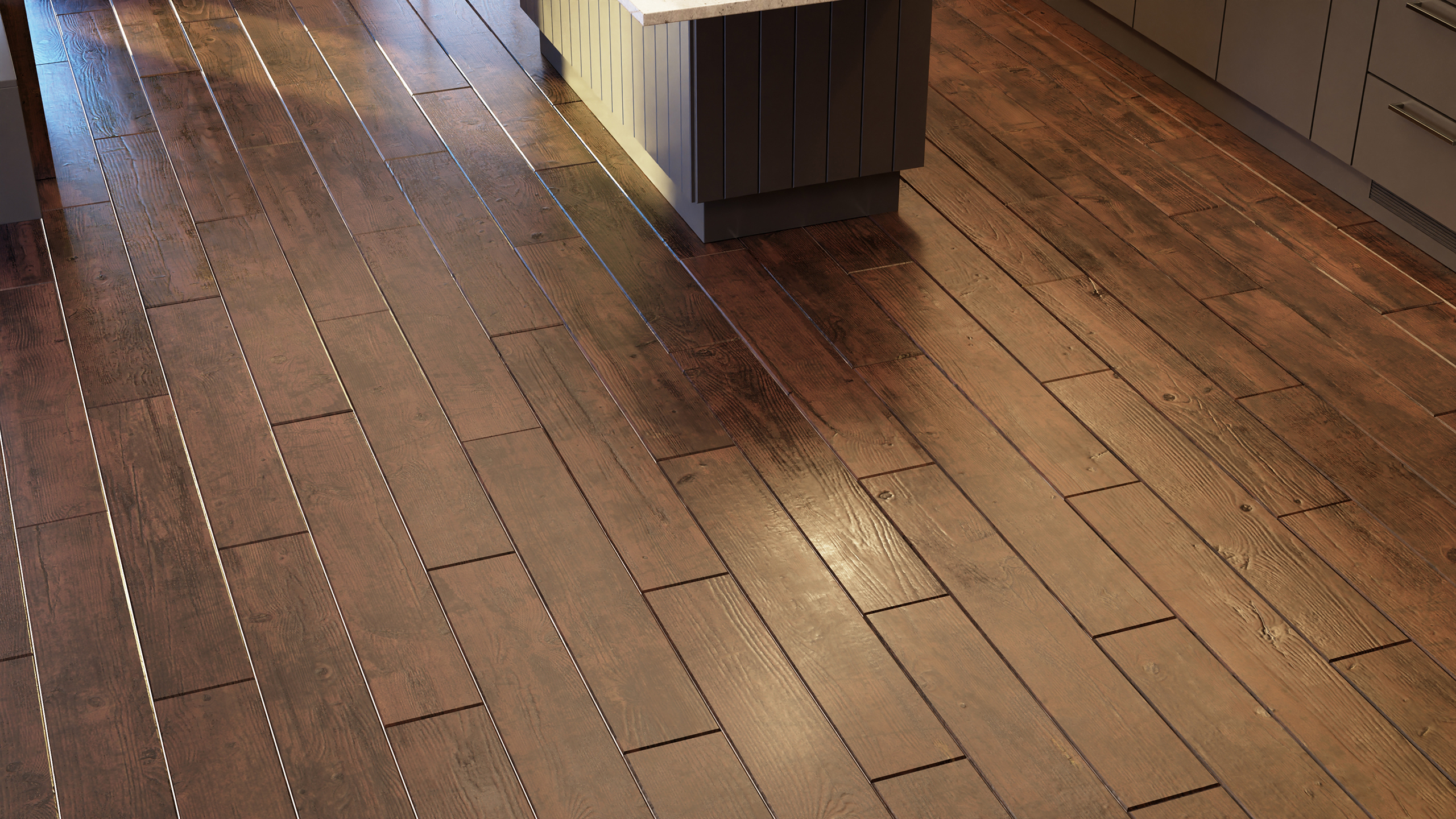
Tile Flooring
Tile is another durable and aesthetically appealing flooring ideal for kitchen floors. Thanks to their hard surface and moisture resistance, tiles can withstand heavy traffic and moisture, which is synonymous with kitchens. They come in a variety of designs and can be made to mimic natural stone, wood, or slate.
The Advantages and Disadvantages of Tile Flooring
Pros
- Durable and long-lasting
- Low maintenance
- Water and stain-resistant
- Versatile designs
Cons
- Uncomfortable underfoot (too cold during cold weather)
- Not easy to install
- Difficulty maintaining grout lines
Ideal Applications
Standard kitchen tile options include porcelain, ceramic, and stone. Other ideal places for tile flooring include laundry rooms, entryways, and bathrooms.
Laminate Flooring
Laminate is a multi-layered, synthetic flooring made to simulate natural flooring materials such as solid hardwood and stone. This type of flooring is typically made up of four layers – an underlayment (backing that provides protection and insulation), a core layer (high-density fiberboard or plywood), an image layer (high-resolution image of wood, stone, or any other material), and a top wear layer (a thin and tough transparent material for protection against damage).
The Advantages and Disadvantages of Laminate Flooring
Pros
- Durable
- Affordable
- Easy to install
- Easy to maintain
Cons
- Prone to moisture damage
- Cannot be refinished
- Noisy underfoot
Ideal Applications
Laminate flooring can be ideal in areas not subject to excessive moisture, such as bedrooms, hallways, and living rooms. It can also be used in kitchens, but you should clean up spills immediately to avoid the risk of percolating and damaging the porous inner layer.
The Rise of Luxury Vinyl Flooring
Luxury vinyl flooring is a durable and versatile material, which, as its name suggests, has a luxurious appearance. Its ability to withstand wear and tear, moisture, stains, and ease of maintenance makes it ideal for high-traffic areas such as the kitchen.
Luxury vinyl flooring can be made to simulate other natural materials such as wood and stone and is available in a variety of options, including:
- Luxury vinyl tile (LVT)
- Luxury vinyl plank (LVP)
- Engineered vinyl plank (EVP)
Why Is Luxury Vinyl Flooring Becoming Popular?
Since its introduction, luxury vinyl flooring has continued to grow in popularity, and for good reasons. These include:
Affordability
The popularity of luxury vinyl flooring can be attested to its unique combination of qualities. It’s affordable and can be engineered to simulate other luxurious but expensive flooring materials.
Durability
Luxury vinyl flooring is highly durable and ideal for areas receiving high traffic, such as the kitchen. It is more resistant to moisture, scratches, stains, and general wear and tear.
Design Versatility
Design versatility is another plus feature behind the popularity of luxury vinyl flooring. It comes in different styles, patterns, and colors, allowing you to reproduce any natural flooring look in your kitchen.
Ease of Installation
Luxury vinyl flooring is easier to install than most other types of floors. Whether you hire a professional installer or do it yourself, you can complete the installation in less than a day.
Comfort
Luxury vinyl flooring is comfortable underfoot compared to other options, making it a preferred choice.
Low Maintenance
Unlike other high-maintenance floors, luxury vinyl flooring is easy to maintain.
Why Choose Luxury Vinyl Flooring: Yates Flooring VA’s Specialty
Luxury Vinyl flooring combines a handful of unique and premium features, which justifies its growing popularity. If you’re looking for 2024 flooring trends, you can never go wrong with luxury vinyl flooring solutions. And if you need expert flooring installation in Chesapeake, VA, we invite you to check us out. At Yates Flooring, VA, luxury vinyl flooring is our specialty. Call us at 757-717-9955 or contact us to request a free quote.

